|
One of the documents included in a loan package is the Signature & Name Affidavit this form lists variations of the borrowers name such as “AKA’s” that the lender may have located when checking the borrowers credit or when the title search was completed.
The name variations may differ from their name as it appears on the lender’s loan documents as those appearing on the credit report, are or maybe included in the affidavit. What is a Signature & Name Affidavit? Signature Affidavit document is generally combined with the Name Affidavit & is a document in which a person certifies that the signature provided is the true and correct signature used by the person; Name Affidavit allows a person to give a declaration that they are the same person as another name. This might be necessary in the event the person may have been known by or used different names in the past. Sometimes they are given under oath while other times they are given before a notary public.The person can enter into a contract using the signature provided. It is similar to providing a signature card when open a bank account. The purpose of the Signature Affidavit is to provide a sample signature that can be used to establish if the borrower signed a document or not. This document is mainly for the protection of the lender who will verify that the name of the borrower against the signature provided is correct. The legal documents (Note, Deed, etc.) are signed using the same signature as in the Signature Affidavit. During a Loan Signing some borrowers have as much as 3 pages of AKA's and others may have just one page with one name. I compare this form with the Driver LIcense or ID presented to me at the beginning of the signing, and often time their legal name ( as listed on the ID) is not included in the AKA form so I write it as it appaers and make sure they sign accordingly. Those borrowers with multiple pages often ask , "Where did all these names come from?" "Your credit report! Which could contain different versions of and maybe even misspellings of your name. For example, your first and last name might appear along with your first and last name with your middle initial. Your credit report is compiled using information from the creditors and lenders you do business with. The name you put on your applications (the one that appears on your credit card or your statements) is the name that appears on your credit report, so be consistent. Also, if creditors have misspelled your name, that misspelling will appear on your credit report. This document sparks up a conversation regarding the various names showing up because clients are surprised to see so many name variations, which they have no knowledge of, So recommend they pull their credit report, which is available for free once a year, and dispute any minor credit reporting mistakes with the credit bureau because if those names -- and any un recognized accounts could be the work of an identity thief
0 Comments
Completed a Conference Call Closing today; the property is in [SC] and closing in [CA] and requires an attorney to be present via a Conference Call.
What is a Recorded Conference Call Closing?
 Recently I received a call from a woman, requesting information about “Medallion Seal or “medallion notarization,” She was looking for a Mobile Notary to come to her location, for a Medallion Seal. Her elderly’s caregiver was donating a bond that required a “Medallion Seal” Exactly what service is being requested? a “medallion signature guarantee,” is a special signature guarantee required for the sale or transfer of securities. The most common use for a signature guarantee is to authenticate the right to sell or transfer securities. It protects the person who owns the stock or certificate and makes it more difficult for someone to forge a signature. To be able to affix the signature guarantee stamp or imprint, financial institutions join a signature guarantee program, the most widely used being the three Medallion Signature Guarantee Programs. Like a notary service, a representative of a participating financial institution reviews your paperwork, witnesses your signature and then, in applying the signature guarantee stamp, guarantees that your signature is genuine. The stamp uses a bar code, special ink, and other security features to make it more difficult to copy or counterfeit. This is different than a notary’s purpose in performing an acknowledgment or oath/affirmation notarial act. A Notary determines that the person who signs a document in her presence is in fact who that person claims to be. When appearing before a notary proper identification is presented, the notary compares your appearance, name and signature to the identification, & verifies the signature matches and applies a seal to the document. The notary, in effect, acts as an impartial witness and implements requirements that deter fraud. A medallion signature guarantee is the issuing financial institution’s certification that a signature related to sale or transfer of securities is authentic. Medallion signature guarantees have a completely different purpose from notarization, & should not be confused with notarization, and cannot be performed by a notary unless he/she is a certified participant in a financial institution’s medallion signature guarantee program. Any requests for a “medallion signature notary” or “golden medallion notarization” or similar should be referred to a bank. The requester may contact any local bank and ask if the bank can issue a “medallion signature guarantee.” https://www.sec.gov/fast-answers/answers-sigguarhtm.html The frequency of mail-away closings is increasing. In an industry, when buyer or seller conducts a real estate transaction in absentia, it is called a “mail away and have become increasingly popular, to the point where it is a rarity for buyer and seller ever to meet, ever to communicate directly, or ever to sit down together at the same closing table. If you are involved in a closing that requires the mailing of documents below are some tips that can help avoid delays.
Connecticut: Two witnesses required (one witness may be the notary) Florida: Two witnesses required (one witness may be the notary) Georgia: One witness required (can’t be the notary) Louisiana: Two witnesses required (neither can be the notary) South Carolina: Two witnesses required (one witness may be the notary). If you're not sure, just call the phone number for your closing company, contact information is listed on the instruction page included in the loan package. if any questions arising during the signing, they would rather talk you through every little step than to re-do everything later because something was unclear.  There really is a reason! As Notary Signing Agents, conducting mobile loan closings we often encounter The Statement of Information form, which is often found in the loan packages we print and courier to the borrowers for signatures. This form sparks up conversations which borrowers look to us for answers regarding their sensitive information & its purpose. We (Notaries) are left to answer questions related to the document to which we provide as much information as possible to put the customers at ease. Although our main role as Certified Notary Signing Agents is to Identify borrowers, witness their signatures & notarize affidavits, Deeds & Mortgages Whether it be a refi, sale, or purchase property, borrowers often expect us to know what they are signing & the purpose of certain documents, the Statement of Information is one of them. We (notaries) try to provide as much information as possible on the forms but sometimes it can be a little tricky. I provide the following information regarding this form to my borrowers and point them to the right direction to where more information can be found ie *California Land Title Association their Loan, Title, or Escrow officer. When a title company seeks to uncover matters affecting title to real property a completed Statement of Information is required for the title company to use to distinguish the buyers and sellers of real property from other similar names, in fact the new CAR Residential purchase agreement calls for a Statement of Information to be provided by the seller to the escrow holder within 7 days of acceptance. To help better understand this sensitive subject, the California Land Title Association has answered some of the questions most commonly asked about the Statement of Information. In searching titles to real property, judgments, bankruptcies, divorces, income-tax liens against persons with similar names may be encountered. These matters cloud the title to the property unless eliminated by information showing that the parties in the real-estate transaction are not the person(s) involved in these difficulties, considering California’s community property laws, something about the spouse, too, if married -- so that matters not directly affecting the borrowers may promptly be ignored, as all matters not directly affecting the property being searched. What is a Statement of Information & What does it do? A Statement of Information is a form routinely requested from the buyer, seller, and or borrower in a transaction where title insurance is sought. The completed form provides the title company with information needed to adequately examine documents to disregard matters which do not affect the property to be insured, matters which apply to some other person. Every day documents affecting real property – liens, court decrees, bankruptcies are recorded whenever a title company uncovers a recorded document in which the name is the same or like that of the buyer, seller or borrower in a title transaction, the company must ask, does this document affect the parties we are insuring? Because, if does it affects title to the property and would therefore, be listed as an exception from coverage under the title policy A properly completed Statement of Information will allow the title company to differentiate between parties with the same or similar names when searching, documents recorded by name. This protects all parties involved and allows the title company to competently carry out its duties without unnecessary delay. What types of information are requested in a Statement of Information? The information requested may include, but is not limited to full name(s) last 4 digits of your Social Security number; driver’s license number; year of birth; date of marriage if applicable; any previous marriage(s) if applicable; residence(s) for the past 10 years and place(s) of employment for the past 10 years What happens if a buyer, seller, or borrower fails to provide the requested statement of information? At best failure to provide the requested Statement of Information will hinder the search and examination capabilities of the title company causing delay in the production of the title policy. At worst failure to provide the information requested could delay the close of escrow. Without a Statement of Information, it would be necessary for the title company to list exceptions from coverage judgments, liens or other matters which may affect the property to be insurance. Such exceptions would be unacceptable to most lenders whose interest must also be insured. This information is meant for general information only and is not to be construed as legal, tax or investment advice. The information has been gathered from sources believed to be reliable. Situations may vary, therefore professional should be consulted. * http://www.clta.org/page/Consumer11/Understanding-Statements-of-Information.htm Commercial Loan Closing
The one thing I love about being an Independent Notary is the variety. I meet a variety of clients and perform a variety of notarizations, no two days are the same. For example, I had the privilege of helping two local developers with the Commercial Loan Closing of the development of a Low Housing multifamily complex for a city called Lost Hills, in Kern County California, located west-northwest of Bakersfield where 75% of the population is engaged in agriculture. This particular complex would house the local farmworkers & their families who majority are low income. The gentlemen found me online through my AdWorks on google which is on 1st page placement. This was a lengthy signing one that took about 3 hours to complete due to the number of documents that needed to be Notarized. Although I don’t know the exact purpose of each document, a separate journal entry had to be made per page per signer, which is a requirement according to California law. Documents I Notarized Tower Line Agreement UCC Financing Statement Construction DOT Assignment of Rents Delivery Assurance Deed Of Trust Regulatory & Declaration of Rest. Cov Delivery Assurance Deed of trust Multifamily Guarantee Agreement Partnership Subordination Agreement Amended & Restated Agreement Construction & Permanent Deed of Trust Deed of Trust with Assignment of Rents Deed of Trust Assignment of Assumption The amount of documents may seem small but we had 3 packages to do, Lender Copy, Title Copy and & Housing Authority Copy. We joked about how sore our hand was after this lengthy signing. Susana Landa Independent Notary Public www.notaryservicesbysl.com Loan Application vs RESPA Signings
There are threads on social media discussing that we as Notary Signing Agents are not to be “doing” loan applications. It appears that a Signing Company told a notary that another notary got in trouble for conducting a Loan Application. That is correct, we are not supposed to be taking a loan application because we do not have an originator's license. (Title V of P.L. 110-289, the Secure and Fair Enforcement for Mortgage Licensing Act of 2008 (“SAFE Act”) There is a big difference between taking a loan application and doing a RESPA signing (which is what most of us are being asked to do). Loan Application; is the part where the loan originator gathers all the information needed from the borrowers in order to get the file into underwriting. The originator will ask the borrower everything that is on that 1003 loan application, enter it into their software system, and upload the credit report to show liabilities, discuss loan products, interest rates, and payment information with the borrower. The loan originator will then most likely upload all this information into some sort of underwriting software that is used by the lender and that in turn will generate a list of items the borrowers need to provide to the loan originator and underwriter in order for the file to close. The originator will then print out the RESPA documents that are to be signed by the borrowers. These RESPA documents are time sensitive as they need to be signed within 3 business days from credit being pulled. RESPA signing; is where we (Notaries) come in. The loan originator will ask us to conduct the RESPA signing. We are not notarizing, or taking a loan application as that has already been done by the loan originator (not the notarizing part) We are just watching the borrowers sign their RESPA documents and gather up the documents such as bank statements, pay stubs, divorce decree, W-2s, tax returns, insurance information, homeowner's association information, letters of explanation, etc. Whatever underwriting software told the loan officer that would be needed in order to approve the loan. We (Notaries) are not there to give advice, sell a product, we are simply there to watch them sign and gather up the documents needed by the loan originator to give to the underwriter. Knowing the difference between a Loan application vs a RESPA signing is important so that as Notary Signing Agents, we can make sure we are not doing anything illegal & therefore can expand on the services we provide without worrying about Unlawful Practice of Law or worry. IMO: we (NSA/Notaries) are Independent contractors not employees, Independent Contractors NOT Loan Originators http://mortgage.nationwidelicensingsystem.org/safe/Pages/default.aspx https://www.fdic.gov/regulations/laws/rules/6500-700.html#fdic65001008.103 Let me facilitate the signing of the RESPA closing documents Thank You Notaries are sometimes asked to “Notarize”, a Copy of a Passport, Green Card, Driver License, Utility Bills, and similar documents for legal process, these requests are routinely refused because not all states authorize Notaries to “Notarize” and not all documents are eligible for a copy certification / attestation by a Notary.
The following will help clarify some of these requests: Option 1 Copy Certification/Attestation is different from notorial acts involving a signed document, an oath is not administered to take an acknowledgement from anyone, instead the custodial of record makes the photocopy of the document & or the Notary compares the original to the copy and then certifies or attest that the photocopy is a true copy of the original. *note: only certain states authorize copy certification/attestation of the comparison method. (check with the state’s SOS) . When a Notary makes an attested copy of a document, he/she is not guaranteeing, authenticity of the original document, its contents, or its effects. The Notary is simply stating that the photocopy is a “true” and complete copy of the of the original document presented. The Notary’s certification is made in a notorial certificate worded for that exact purpose. Process: Original document must be presented for comparison make the witness take photocopy of the document. If the copy has already been made then the original must be presented for comparison. You cannot take some one else’s word that a photocopy is a “true”, not matter how trustworthy that person may be. (depending on the state) A certified copy issued by the official document custodian (example: a certified copy of a marriage record, birth certificate etc. Issued by the county clerk) is NOT an original document – it is s copy. A Notorial certificate is completed for copy attestation or Copy Certification by Custodian (depending on the state) . It is recommended that a Notary Journal entry be made as best practice. Most commonly presented documents that the Notary might encounter:
Option 2 Attestation/Certification of Copy by Document Custodian. Certification of Copy by Document Custodian What if your authorized notorial duties do not include making certified or attested copies of documents? The Document custodian may wish to swear/affirm that a copy he or she made is of an original document is a true copy. The document custodian would make a written affidavit(statement) that a true photocopy was created from the original document and the Notary would take the custodian’s oath/affirmation bout the truth of the affidavit and complete a jurat. This procedure places the responsibility about the photocopies document on the client not the notary, and should be handled responsibly. Sample Affidavit: (California) COPY CERTIFICATION BY DOCUMENT CUSTODIAN I, _______________________________________________________________[name of custodian of original document], hereby swear (or affirm) that the attached reproduction of ___________________________________ [description of original document] is a true, correct and complete photocopy of a document in my possession. Under penalty of perjury under the laws of the state of California, I attest to the truthfulness, accuracy, and validity of the forgoing statement. ____________________________________ ___________________ Custodian’s Signature Date Custodian’s Address: ______________________________________________________ A notary public or other officer completing this certificate verifies only the identity of the individual who signed the document to which this certificate is attached, and not the truthfulness, accuracy, or validity of that document. STATE OF CALIFORNIA COUNTY OF ________________ Subscribed and sworn to (or affirmed) before me on __________________, 20_____, by ________________________________________________________________________ proved to me on the basis of satisfactory evidence to be the person(s) who appeared before me. _______________________________ (seal) Signature As Notaries, we cannot speculate that the copy certification affidavit will automatically be accepted by the receiving party, nor can we counsel to whether a relying party should accept this process, the most we can do is ask the document custodian if he/she wishes to make an affidavit about the trueness of the photocopy, show him/her the affidavit language if available, and let the client choose what to do. If the document custodian has any questions about the advisability or effects of the affidavit, custodian of records, will have to consult an attorney or another party relying on the transaction. www.immihelp.com Anxiety in undocumented Immigrants is rising. The uncertainty of what may happen is weighing heavily on the minds of many undocumented immigrants in California, particularly in the San Joaquin area, where a large population of the undocumented Immigrants are farm laborer’s. Thus, requests for Guardianship, POA’s, Affidavits & Notarized Letters for their minor children has risen, In preparation of “just in case”
According the California Courts parents can agree to let a family member or a trusted individual the permission to take care of their child(ren) without having to go to court. They can sign a Power of Attorney for a Minor Child in front of a Notary that gives “physical custody” of the child which allows the caregiver to make decisions about the child’s education, and medical care, & health insurance. This Power of Attorney can be cancelled at any time. The form is called Appointment of Short-Term Guardian for Minor Children and Durable Healthcare Power of Attorney & is an 8-page document which includes a Revocation of Short-Term Guardianship, which terminates the POA. If the child will remain in California, the person (caregiver) can complete a Caregiver’s Authorization Affidavit (form can be found in the California Courts Self-Help Center website). If the caregiver, is a relative the form lets him or her enroll the child in school and get medical care. If the caregiver is NOT a relative the form still lets them enroll the minor is school but they are only authorized to make medical care decisions that are school related (like immunizations, or physical exams required for school enrollment) Some schools and medical facilities accept the Caregiver Authorization, or Notarized POA it is possible that some will require a legal guardianship court order instead. The parents can cancel these forms and take the child even if it’s not safe for the minor. As a Notary Public, however, my primary role is to serve the public as an impartial witness, when important documents are signed, and cannot provide legal advice to my customers. However, this does not limit the amount of information I can provide to my customers, as this information is free & anyone in the public can access it. California Family Code sections 6550-6552 and probate code sections 2353 & 2356 California Courts Self Help Website. Trust is important in modern society. In legal matters, causation is the casual relationship between conduct and result, in which business dealings between strangers are the norm rather than the exception.
Trust enables sensitive documents from deeds for real estate property to contracts promising essential services, to be exchanged with confidence. Without it the consequence would be disorder, and increased threats of fraud. Even though we must trust strangers to conduct business, knowing as much about the transacting parties as possible to assure that its agreements and promises are made reliably is important therefore, a process that enables confidence and engenders trust, has increased, it is a reliant system that maintains the rule of law, preservers the integrity of an agreement, and ensures the authenticity of a transaction. This process is in place and working well, though it is often misunderstood and unfairly criticized. That process is called Notarization and is essential and more relevant than ever. Notarization: Why is it important? Notarization dates back thousands of years, the process has represented trust, assurance and legitimacy of official documents backed by a governing body. Although numerous documents are freely exchanged in our society, individuals and organizations require greater guarantees of trustworthiness and accuracy relating to certain agreements. Notarization in-fixes a written document with unspoken intention and commitment, providing a secure solution that gives trust a material form. It is the official certifying process that renders documents worthy of the public trust, and offers assurance that a document is authentic, that its signature is genuine and that a signer acted willingly and intended the terms of the document to be in full force and effect. An individual's acceptance, consent or signature taken separately or even together cannot deliver the security and certainty that notarization provides. Individuals entering in to agreements personally appear before an impartial and unbiased Notary Public, are identified as the person they claim to be and acknowledge that they signed voluntarily. Importantly the resulting notarized document becomes distinguishable from any other because of the seal and official, signature of the Notary Public. Different Notarial acts or Notarization's Acknowledgment: Is generally performed on documents controlling or conveying ownership of assets; example of those documents are: real estate property deeds, legal documents such as powers of attorney and sometimes trust and wills. The signer must appear in person at the time of Notarization to be positive identified and to declare that the signature on the document is his or her own, that it was willingly made and that the provisions in the document are intended to take effect as written. This notarial act is authorized in 50 states and jurisdictions. Jurat: Is typically performed on documents that are critical to the operation of the court system. Such documents include affidavits and depositions. For a jurat, the signer must appear in person at the time of Notarization to sign the document, and to recite aloud an oath or affirmation promising that the statements in the documents are true. A person who takes an oath or affirmation in connection with an official proceeding may be prosecuted for perjury should he or she fail to be truthful. Certified Copies: The copy certification is performed to confirm that a reproduction of an original document is true, exact and complete. Examples of those documents are: college degrees, passports and other documents which cannot be copy-certified by a record office such as a bureau of vital statistics or county recorder's office . This notarization is not authorized in every state but in the jurisdiction where it is allowed, may be executed only with certain original documents. Each state has its own laws governing the performance of Notorial acts. The Notary Public: Every Notarization is performed by a Notary Public. Notaries must apply to a state agency typically the secretary of state. The role of a notary Public cannot be replicated by individuals in the general public. Fewer other individuals have the requisite training experience and impartiality necessary to positively verify the identity of a signer, assure willingness and confirm the act of acknowledgement or administration of an oath or affirmation. This is why Notaries should receive no personal benefit from the transactions they notarize. They must also never refuse to serve a person due to race , nationality, religion, politics, & sexual orientation. Impartiality also means that Notaries must operate independently and resist improper or illegal requests or demands of customers, friends or family members. Notaries are accountable for following the law and have unlimited financial liability for any harm caused another person by their negligence or intentional misconduct. Notary Laws in most states requires that document signers appear in person before the Notary at the time of Notarization to authenticate their identity and their intention that a particular document or transaction to be in full force and effect. Yet this is the law that Notaries are most often pressed to violate. Today, Notaries are now being used to verify the identity of individuals in a variety of functions of situations, even for electronic transactions or communications in which confirmation of an individual's identity and the authenticity of an accompanying electronic signature must be established , why? because of the Notary's familiarity with verifying identity , as well as for their impartiality, Notaries: Ensurers of Trust for Today's Business The Notarial act is the foundation of trust and the Notaries who perform them are society's guarantors of authenticity and integrity. |
Archives
January 2024
Categories |
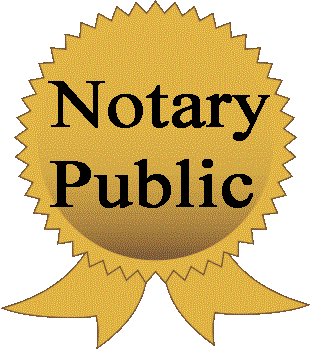
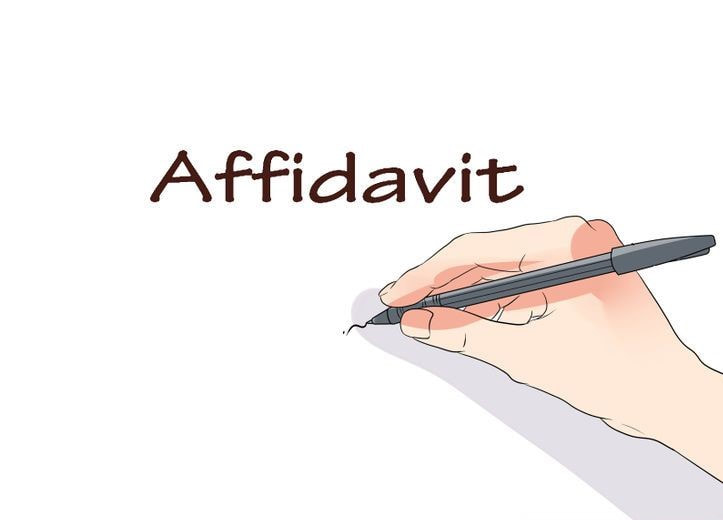
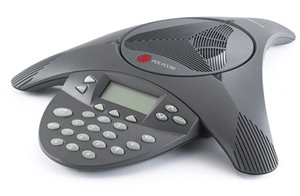
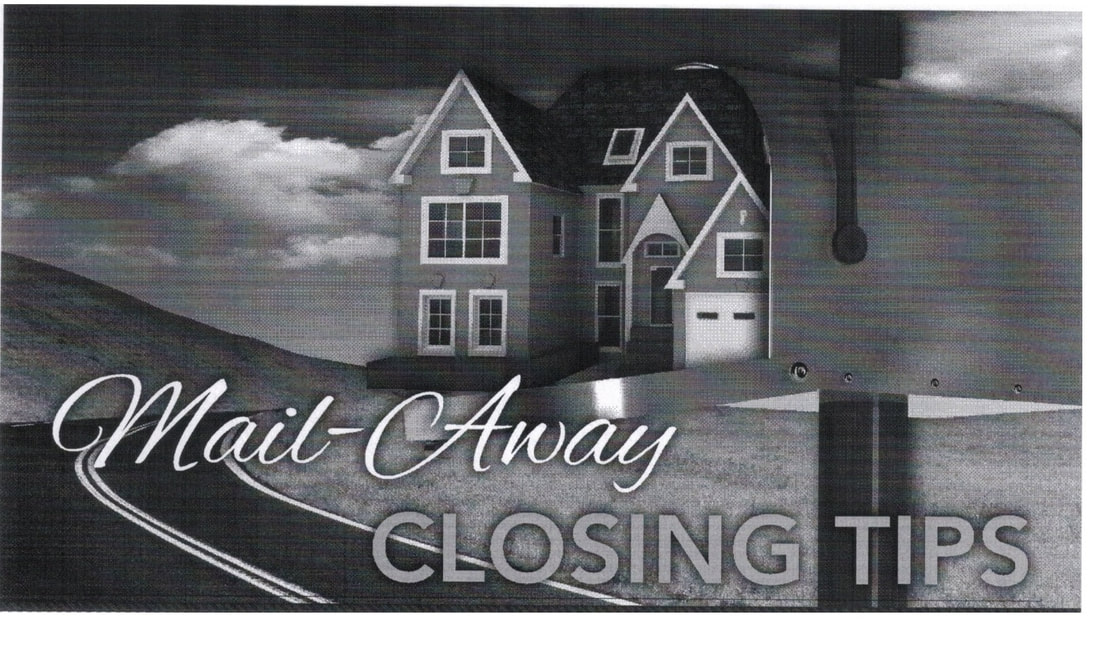
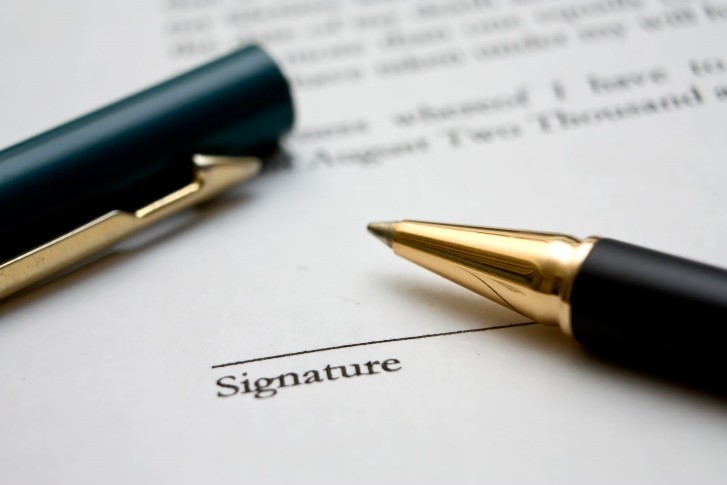
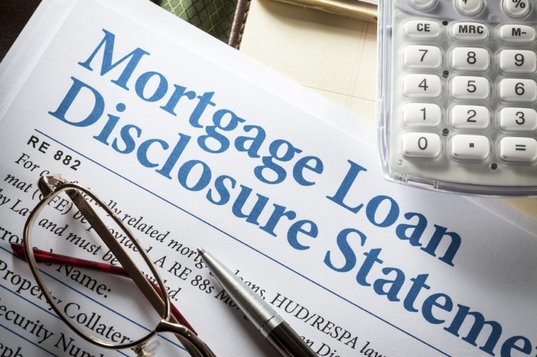
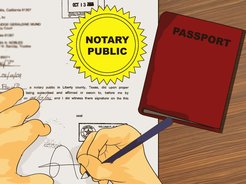
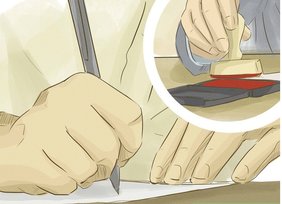

 RSS Feed
RSS Feed